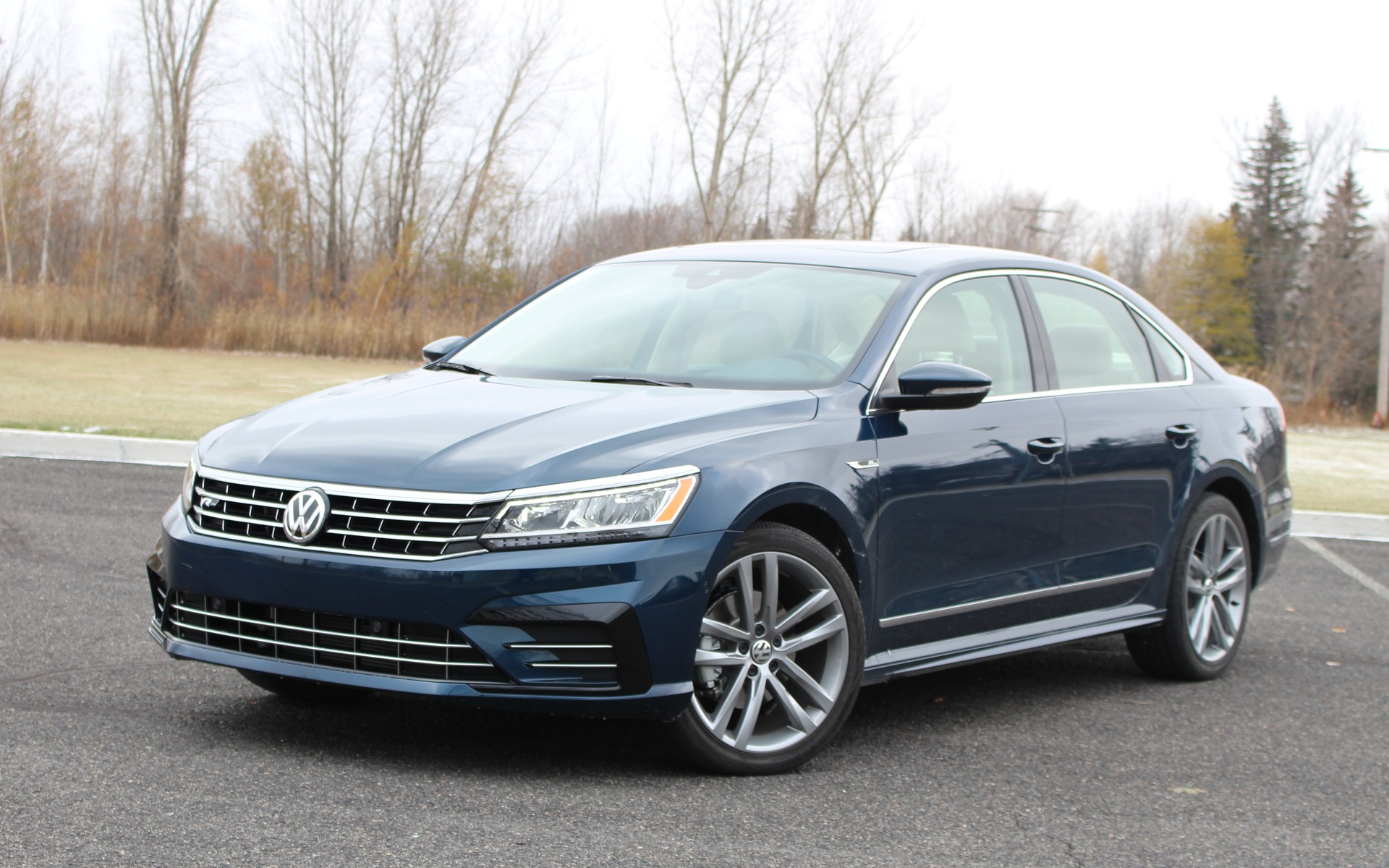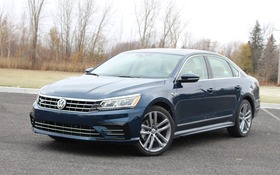2018 Volkswagen Passat: New Heart, Old Bones

| Strong points |
|
|---|---|
| Weak points |
|
The Passat has been around in its current form since the 2012 model year, and received little changes since its debut. It’s built in the United States, and is actually a different car—a bigger car—than the Passat sold in Europe, seeking to please a market that prefers larger vehicles.
When it was launched, this North-American Passat figured among the best-handling cars in the midsize sedan segment that includes big guns such as the Honda Accord and the Toyota Camry. However, over time, the competition has caught up, and it’s time for Volkswagen to introduce a new generation.
That will come next year, as a totally redesigned Passat with turn up for the 2020 model year. In the meantime, the current car gets a new powertrain that consists of a turbocharged, 2.0-litre four cylinder managed by a six-speed automatic transmission. According to Volkswagen, this new engine is highly advanced, but it doesn’t seem that way on paper with an output of 174 horsepower and 184 pound-feet of torque. On the other hand, the latter peaks between 1600 and 3940 rpm, so there’s plenty of muscle to get the car moving along swiftly. In addition, the engine is relatively quiet and quite efficient, as we averaged 6.6 L/100 km during our test.
A 3.6-litre V6 is also available in the most expensive Highline trim, but also in the new-for-2018 Passat GT, which gets a few cosmetic add-ons to a give a sporty flair to the car. It’s a muscular mill that provides extra performance, but since very few midsize-sedan buyers spend the extra coin for the bigger engine, it will likely not be available for much longer.

Our test car also boasted the R-Line appearance package, which is optional only on the Passat Highline—a shame, because it sharpens the sedan’s looks just a touch, without overdoing it. Because midsize sedan buyers aren’t interested in a sports car, and the GT trim is there for the few people who are.
The 2018 Volkswagen Passat’s cockpit is both comfortable and bland at the same time. Nicely supportive seats, as German manufacturers usually offer, will make road trips most enjoyable, and we’ll always feel in one piece when we arrive at our destination. The switchgear on the steering wheel is perfectly placed and the driver instrument panel couldn’t be simpler to read, while the climate control rotary dials are the easiest to use without being distracted. There are a few items missing that can be found in other midsize sedans, such as a heated steering wheel, ventilated seats and a 360-degree camera system.
As for the infotainment system, Volkswagen’s interface isn’t the slickest out there, but works well nonetheless. The on-screen button zones could be bigger, as we frequently pressed the wrong button while driving. Luckily, there are a few main menu buttons around the screen for quicker access to the system’s functionalities.
Fit and finish is fine, but the design is really conservative. It’s not necessarily a bad thing for this segment, but it little more sophistication would be welcome. We’ll have to wait for the next-generation Passat for that. On the other hand, space is good up front, great at the rear with plenty of head- and legroom. The Passat’s trunk is also one biggest in its segment.

The Volkswagen’s $26,195 base MSRP is more or less in line with its recently redesigned rivals, so there’s no price advantage to compensate for the car’s age. Our Highline tester cost more than $38K, and for about the same sum, we can ourselves a loaded Accord Touring, or for less coin, well-equipped variants of the Camry, the Hyundai Sonata and the Kia Optima.
While it may benefit from a new heart, the Passat has old bones, and alongside the segment’s newcomers, it lacks the refinement and technology of its rivals. However, it still serves a purpose as a comfortable, long-distance family cruiser. If we’re the kind of person that always needs—or more specifically, wants—the latest smartphone or television, we might want to wait until 2020 before taking a gander at the Passat.











